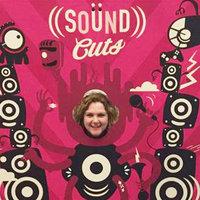
What is your job role and what does it entail?
I run a company called Soundcuts and my role within that is as an Audio and Speech Director but, because we’re freelance, I take on a variety of different roles depending on the project, designing sound, music editing and integration. So I do a bit of everything.
How did you start working in the game industry?
I studied Sound at the National Film and Television School. What I really adored there were the animations because there wasn’t any sync sound and everything had to be created from scratch. After studying there, EA got in contact with the head of the audio department asking if anyone at the school wanted to work on cut scenes for one of their new games. Knowing that I loved animation he asked me if I was interested in meeting them for a chat; I got a short term contract working on that game and a few months later EA offered me a permanent position.
What/who was your inspiration at school?
I guess the biggest inspiration was when I did work experience on BBC Radio York. I was put with a news reader who didn’t really have time for a work placement so they left me with the audio engineers and luckily, I found that far more interesting. So I went and did another work placement at Yorkshire Television in the sound department and I just loved it! I think when you get that feeling, you know you’ve found what it is you want to do.
Did you have a mentor? Do you have a mentor now?
I’ve never had an official mentor but despite that I’ve found it a very positive industry to be in. Everyone is so supportive, I think because the technology is constantly changing there’s a naturally supportive network as everybody is constantly finding out things and sharing knowledge.
Did you study anything at school/college that you think helps you in your job now?
I chose maths, music and physics as my A-levels which, by sheer luck, was what you needed to get onto the few sound design courses there was at that time. Of course, the maths and physics are certainly useful when it comes to technical implementation of sound design. I also studied drama which helps when working as a Speech Director as it allows me to talk with the actors in a technical language they understand.
What’s your favourite part of your job?
I really like all of it. A few weeks ago I was doing a lot of speech direction and thought, “this is my favourite part”. Then after that I was doing music editing and thought “no, I need to do more of this!” So I’m just mega into whatever I happen to be doing at the time.
What is the hardest thing about your job?
We work on so many different projects and every team works in a slightly different way with different tools and tech. At the start that can be challenging, but equally it’s really interesting to experience the unique ways different companies work, so I’m always picking up new methods and ways of working.
Can you describe what your average working day is like?
There isn’t really one. Most start with checking the diary to see what’s on, so I know what’s coming up in terms of deliveries. Then I check in with my co-workers to make sure everyone is on track. Before getting on with whatever I have on that day. My schedule is always different.
How do you go about designing sound for games when, unlike live action, players control the action at their own pace and the outcomes to their action are numerous?
I work from the top down, highlighting issues and working out creative solutions as I go. I usually get an early playable capture of a level or sequence I’m working on; then I’ll track lay it as if it were a linear piece, giving it its tension build, narrative direction and sound effects. Then from that I work out how I’m going to make it interactive by considering how a player is going to trigger each part of the sound design. It could be when a player reaches a specific part of the game world, or when they interact with the environment.
What three tips would you give to Young Game Designers thinking about their game systems for their application?
Think about what the audio is adding to the game experience. For example, is it setting the emotion, or is it supporting player feedback by letting them know they’ve done something right, or wrong?
Experiment and be open to different styles – there might be more than one direction in which you can go with your sound design.
Be nice – the design process is so much more pleasant and the results are so much better if you work as a team.

